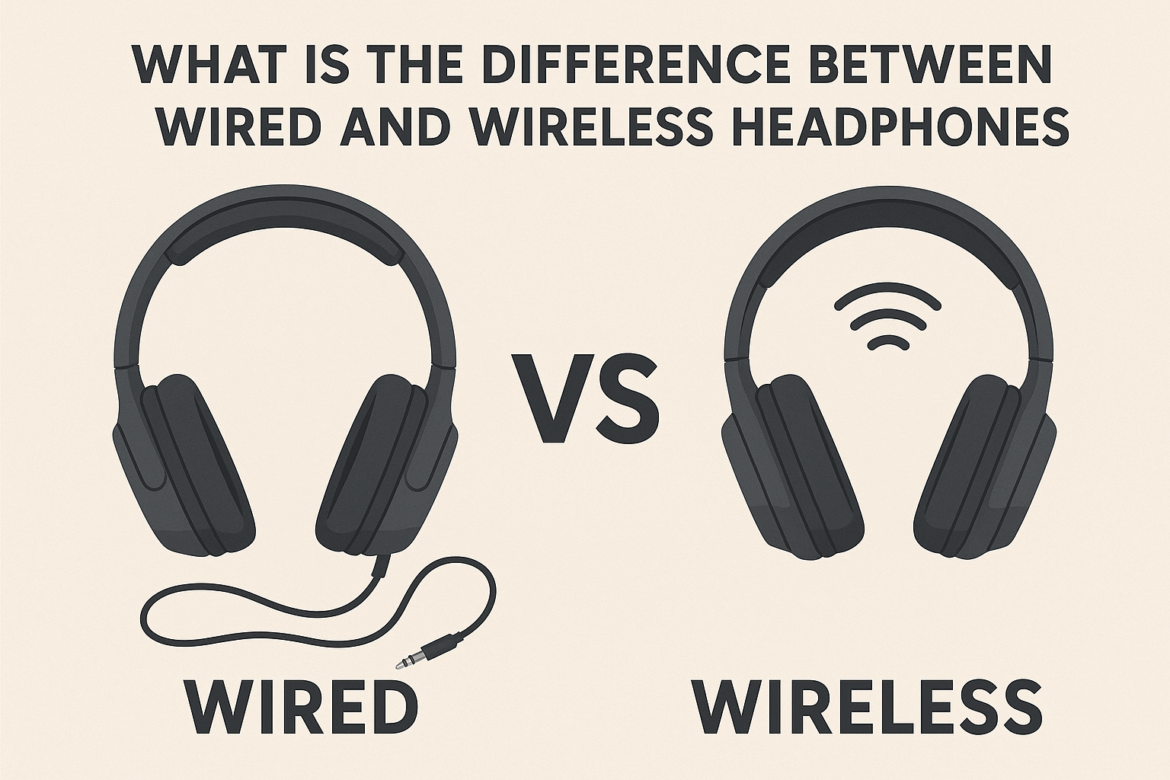What is the Difference Between Wired and Wireless Headphones?
In today’s bustling arena of audio technology, choosing between wired and wireless headphones can feel like navigating a labyrinth of sound. Both types of headphones offer unique experiences, tailored to different needs and preferences. This article will guide you through the maze, unraveling the intricacies and allowing you to make an informed decision.
Understanding Wired Headphones
Wired headphones, those stalwarts of audio fidelity, have graced the ears of audiophiles and casual listeners alike for decades. Their design is straightforward: a cable connects the headphones to the audio source, ensuring a direct transmission of sound. But what makes them tick?
Sound Quality and Fidelity
The hallmark of wired headphones is their sound quality. The direct connection minimizes latency and preserves the integrity of the audio signal, delivering crisp and clear sound without interruptions. Audiophiles often tout wired headphones as the gold standard for high-fidelity audio. This is especially true for professional-grade headphones used in studios, where every note and nuance matters.
Reliability and Compatibility
Wired headphones offer unparalleled reliability. Unlike their wireless counterparts, they do not suffer from connectivity issues or battery limitations. You plug them in, and they work. Furthermore, they are universally compatible with a wide range of devices, from old-school tape decks to modern smartphones and laptops—though an adapter might be needed for devices lacking a headphone jack.
Durability and Maintenance
The durability of wired headphones can vary, but generally, they are robust. However, the cable can be a weak point, prone to tangling and wear over time. Proper care, like using a cable organizer, can extend their lifespan. In the event of damage, replacing a cable is often cheaper than fixing wireless technology.
Decoding Wireless Headphones
Wireless headphones have surged in popularity, becoming the trendy choice for the modern listener. They offer freedom from cables, utilizing Bluetooth technology to connect to devices. But does this convenience come with trade-offs?
Portability and Convenience
The most significant advantage of wireless headphones is undoubtedly their convenience. Without cables, users enjoy unrestricted movement, making them ideal for workouts, commutes, and daily errands. They offer a clutter-free experience, easily slipping into bags without the hassle of tangled cords.
Battery Life and Connectivity
A common concern with wireless headphones is battery life. These devices require regular charging, varying from a few hours to over a day, depending on the model. Some models offer quick charge features, providing several hours of use from a brief charge. Connectivity, while generally reliable, can occasionally falter due to interference or Bluetooth range limitations.
Advancements in Sound Quality
Recent advancements have narrowed the gap between wired and wireless sound quality. High-end wireless headphones now boast impressive audio fidelity, often equipped with features like noise cancellation and customizable sound profiles. However, discerning listeners might still detect subtle differences compared to wired options.
Comparative Analysis: Wired vs. Wireless
To better understand the differences, let’s delve into a side-by-side comparison of key features:
| Feature | Wired Headphones | Wireless Headphones |
|---|---|---|
| Sound Quality | Superior and consistent | Improved with technology, but can vary |
| Portability | Limited by cables | Highly portable, no cables |
| Battery Dependency | No battery needed | Requires charging, varies by model |
| Compatibility | Broad, requires adapters for some devices | Generally compatible, but may need updates |
| Durability | Cable wear can be an issue | Generally robust, but battery lifespan limits |
| Connectivity | Instant, no interference | May experience interference and latency |
Deciding Which is Right for You
The choice between wired and wireless headphones ultimately hinges on your lifestyle and preferences. Here are some scenarios to consider:
For Audiophiles and Professionals
If sound quality is your paramount concern, wired headphones remain the top choice. Their ability to deliver uncompressed audio makes them a staple in studios and for those who prioritize auditory precision.
For Active and On-the-Go Users
Wireless headphones excel in scenarios where mobility is key. Their lack of cables makes them ideal for exercise, travel, and daily commutes. If you value convenience and portability, wireless is the way to go.
For Casual Listeners and Everyday Use
Both wired and wireless headphones have their merits for casual listening. Consider where you’ll most frequently use them—at home, on a commute, or at the gym—and choose accordingly.
For Tech Enthusiasts
If you enjoy the latest tech features, such as active noise cancellation and smart assistant integration, wireless headphones often lead the way with cutting-edge innovation.
Common Misconceptions and Errors
Understanding the misconceptions around wired and wireless headphones can also aid your decision:
-
Sound Quality Misconception: It’s a common error to assume all wireless headphones have inferior sound quality. While entry-level models may struggle, premium wireless headphones offer exceptional sound.
-
Battery Life Concerns: Some users mistakenly believe that all wireless headphones have poor battery life. Many modern models now offer impressive longevity and quick charging capabilities.
-
Compatibility Issues: There’s a misconception that wireless headphones are incompatible with certain devices. In reality, most wireless headphones are designed for broad compatibility, though keeping software updated is crucial.
Conclusion: A Personal Journey into Sound
Choosing between wired and wireless headphones is not merely a technical decision; it’s a personal journey into the world of sound. Both options offer distinct advantages and some limitations, but understanding their differences can transform your listening experience. Reflect on your priorities and lifestyle, weigh the pros and cons, and embark on your own auditory adventure. Whether tethered or untethered, the world of sound awaits your exploration.
Last Updated on August 26, 2025
